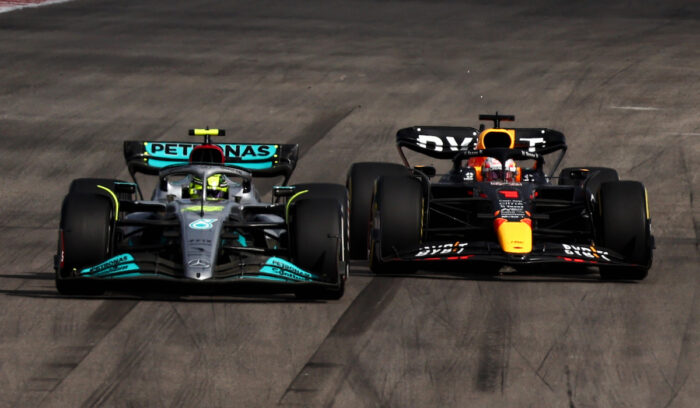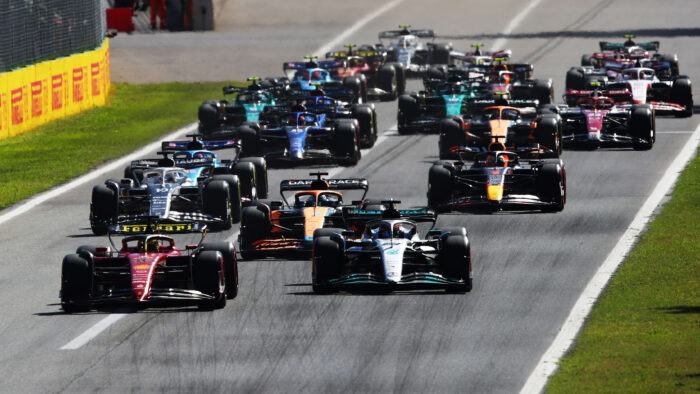Formula 1 is one of the world’s most well-known and popular motorsports. It attracts millions of fans thanks to its exciting races, incredible vehicles, and well-known drivers. What you might not be aware of is that Formula 1 drivers not only receive a big wage but also a sizable bonus for each race they win. The pay for these professional racers also rises as the popularity of this sport develops. Thus, your quest is finished if you’ve ever wondered how much money a Formula One driver will make in 2023.
Here, you can learn about some of the greatest F1 drivers salaries as well as potential extra bonuses for these talented athletes through a thorough list of all Formula 1 drivers salaries and net worths (Source: Formulapedia.com).
What is the average salary of a Formula 1 driver in 2023?
The average salary of a Formula 1 driver and his net worth in 2023 is difficult to predict, as it will depend on the performance of each individual driver and the team they are driving for. Generally speaking, salaries for Formula 1 drivers have been steadily increasing over the past few years. In 2020, the average salary was estimated to be around $5 million annually. This number is expected to increase in 2021 and beyond due to increased sponsorship deals and higher prize money from race wins. Additionally, some teams may offer bonuses or incentives based on performance which could further increase a driver’s salary.
But according to reports from reliable sources such as Forbes, some of the highest-paid F1 drivers in 2023 include Lewis Hamilton ($49 million), Max Verstappen ($35 million), Sebastian Vettel ($30 million), and Kimi Raikkonen ($20 million). Other notable names on this list are Fernando Alonso ($18 million) and Daniel Ricciardo ($14 million). These numbers combine both base salary plus any race winnings or bonuses they have received throughout the season.
What factors influence a Formula 1 driver’s salary in 2023?

The salary of a Formula 1 driver in 2023 can be influenced by several factors. The most crucial factor is the driver’s performance on the track. Drivers who consistently perform well and achieve good results will be rewarded with higher salaries than those who do not. Additionally, drivers’ salaries may also depend on their popularity and marketability. Drivers who have a large fan base or are seen as more marketable to sponsors may receive higher salaries than those without such appeal.
Also, the team a driver competes for might have an impact on their pay; teams with more extensive resources could be able to pay their drivers more money. Finally, the amount of Formula 1 racing experience a driver has can have an impact on their pay; experienced drivers may be paid more than novices since they are more familiar with the sport’s regulations.
How does the salary of a Formula 1 driver compare to other motorsport drivers?

Compared to other drivers in motorsports, a Formula 1 driver irrefutably earns significantly more money. According to Forbes, the average monthly salary for a Formula 1 driver in 2020 was $4.6 million, compared to close to $500,000 for drivers in other motorsports. This distinction mainly stems from Formula 1, one of the most popular and lucrative sports in the world, where teams compete for millions of dollars in prize money each year. Additionally, well-known businesses and brands frequently sponsor Formula 1 drivers, which can help them earn even more money. Other racers often contend for sponsorships and prize money that are offered in much lower amounts.
Analyzing the business endorsements that supplement Formula 1 driver earnings

Some of the highest-paid athletes in the world are Formula 1 drivers, and they earn money in various ways. Business endorsements are one of these sources, and they can greatly increase a driver’s income. It’s vital to look at the kinds of companies that are endorsing F1 drivers in order to examine this source of income. These businesses frequently have ties to the auto industry or other sectors with a passion for motorsports. The value and duration of each endorsement should also be taken into account.
It’s also critical to consider the publicity an endorsement offers the driver and the sponsoring business. This may involve using the driver and/or their vehicle in social media advertisements or television advertising. We can better understand how business endorsements affect Formula 1 driver salaries and why they are so significant for both parties by looking at all of these elements.
The impact of performance bonuses on Formula 1 driver salaries

In recent years, performance incentives have occupied a larger and larger portion of Formula 1 driver salaries. A range of variables, including race wins, podium places, and points accrued, are used to determine how bonuses are handed out to drivers in order to reward them for their performance on the track. Due to their performance-based bonuses, some drivers now make much more money than others in terms of driver wages as a result of this.
The incentive scheme has also heightened rivalry among drivers as they compete to surpass one another and earn more significant compensation. Also, it has made it possible for teams to recognize and reward their best players without having to spend a lot of money upfront. Performance bonuses are now an essential component of Formula 1 driver compensation and will probably stay that way in the future.
Are there any incentives or bonuses for winning F1 races or championships?
Undoubtedly, winning F1 races or championships entails incentives and bonuses. Depending on the club and its sponsors, the bonus’ actual value can range from a few thousand dollars to millions of dollars. Moreover, drivers may receive extra rewards from their teams in the shape of goods, automobiles, or other prizes if they win events or championships.
Drivers may also receive performance-based bonuses from their teams if they exceed certain expectations during a race or championship season. Note also that drivers may be eligible for prize money from Formula One itself if they finish in the top three positions in a race or championship season.